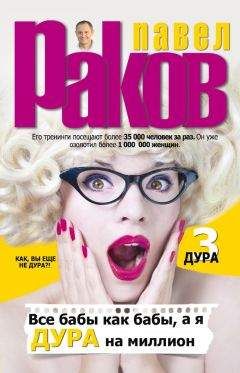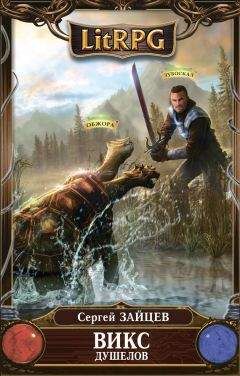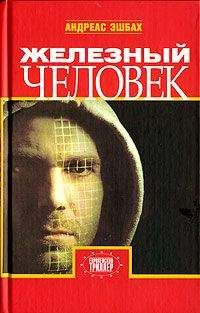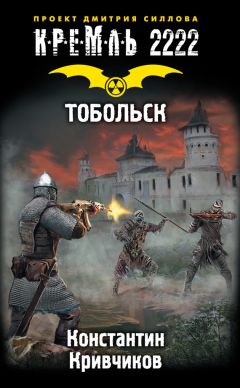Ed Lacy - Breathe No More My Lady
I sat there in a haze, a whole slew of thoughts circling in my throbbing mind. Things like: Is any binge worth the hangover? How can people in love make each other so miserable? The constant thought—exactly what had I done to make Michele blow sky high? There was also the slightly sobering thought that I'd already wasted a half a day, ought to get on my horse.
The bedroom spooked me because it was so neat. I missed Michele's sloppy habit of leaving her underthings hanging on the backs of chairs and on the dresser. There was only one bright spot, I was so glad I hadn't tried to take the blonde in the bar to bed. I wasn't even sure she would have been willing, but the tenth time she said, ”... all that jazz,” I'd lost interest.
Sitting on the bed I realized I was listening intently. I didn't know for what, unless it was the sound of Michele washing up, or her footsteps in the kitchen. I told myself to cut it out A cold shower and food left me with only a faint headache. After I shaved and dressed I went to 'work.' I took out the list of people connected with Francine Anthony's death, in one way or another. Prof. Henry Brown lived in a hotel on West 99th Street, the Hunters lived a dozen blocks from me. I phoned them and didn't get any answer. Next I phoned Brown's hotel. A man answered who couldn't speak English. I kept shouting, “Prof. Henry Brown?” and he kept repeating, “Non,” or something that sounded like that. Next I phoned Matt's agent and his secretary told me he was gone for the day.
I sat by my phone, smoking a pipe, feeling a bit helpless. I walked over to the garage and drove up to 99th Street I worked up a fine sweat squeezing into a parking space that seemed to be the length of my car to the inch.
The 'hotel' was a converted apartment house full of Puerto Rican men, women and children; mostly children. Actually it seemed more like a large pension than a cheap hotel—except for the faint stink of insecticide. The desk clerk was a stooped refugee, a plump man in a loud sports shirt, his bald head almost polished. This was obviously my pal on the phone, for when I asked for Prof. Brown he shook his head and tried to tell me something in God-knows-what-language. When I shook my head he smiled and tried saying it again in Spanish. I shrugged to let him know I didn't understand, and he shrugged back, pointed to the door and let it go. I was getting rattled by this run-a-round and the heat and the insecticide weren't doing my head any good.
When I asked if he spoke French the clerk's face lit up as he rattled back in fast French which I vaguely understood to mean he was delighted to meet anybody who could speak French. I asked in my best slow French for Prof. Brown and merely talking French made me want to cry. The clerk pointed to a wall clock and rattled on. I finally got the idea: Prof. Brown always left the hotel at about ten-thirty in the morning.
I asked if I could have some stationery and he looked embarrassed, as if I'd asked a stupid question. There wasn't any stationery. I told him I wanted to leave a note for Brown and any paper would do. The clerk started a wild search for paper, hunting through a kind of receipt book for a blank piece. I finally told him to tell Prof. Brown I'd be back in the morning, or rather told him as best I could.
There was a phone booth in the lobby and I tried calling the Hunters again. Still no answer. There was a tiny fan in the booth and I sat there for a moment, enjoying the breeze. The other people on my fist were either in Riverside or End Harbor, and it was much too late to drive out there. Matt's agent was out—and actually I didn't know what I wanted to see him about. He wasn't at the house when Francine was killed. So what to do? I phoned the office and asked Miss Park if she had found out who Matt's lawyer would be. She hadn't: it seemed his regular lawyer was trying to hire a good trial man, and had promised to let us know that afternoon. I told her to call or wire me at home as soon as she knew. Miss Park started telling me about some ad in a Chicago paper that had come out badly smudged and I cut her off by telling her to take it up with Marty Kelly. When I hung up I had another bright idea. I phoned in a wire to the Hunters asking them to call me at home as soon as possible.
The desk clerk and I said good day to each other in French and I went out and got in my car. It was almost three and I didn't know what to do with myself.
I started driving down the West Side Highway, considered taking a swim, but any decent beach seemed too far away. It was fairly cool driving and I crossed the Battery Tunnel and drove along the Narrows. When I reached Coney Island I turned off and parked. I had a couple of good hot dogs and a root beer at Nathan's and felt much, much better. I bought the evening papers, strolled the boardwalk, remembering how Michele loved Coney Island. I finally found a seat out on the new fishing pier, took off my coat.
The papers had a rehash of the case on the inside pages. It was an open and shut deal, what could be new? One of them had already started the REAL MATT ANTHONY STORY. I felt sorry for the hack frantically digging through back issues, banging his brains out to keep a day ahead of a deadline. The Post said Matt would be defended by the 'famous criminal attorney, Jackson Clair.'
I watched the old people fishing. Their endless patience reminded me of the Seine fisherman; they never seemed to catch anything, either. Michele and I used to watch them.... I put my head back against the railing to get some sun, shut my eyes. I slept for a half hour and made a frantic inspection of my pockets when I came to. To my surprise I hadn't been rolled.
Sleeping like that frightened me. I started walking and had more hot dogs, clams, root beer, fried potatoes, pizza, and custard—all of it senseless, nervous eating. I still didn't know what to do with myself. Jackson Clair was in the phone book, and after making a note of his number, a trifle astonished there was such a name, I drove home. Undressing to my shorts, for no reason I dusted the apartment thoroughly, and hosed the garden. There was a letter from my mother, the usual small writing: something about she hoped Michele and I would come to California on my vacation. Vacation? Not this year. When I finished Matt's ads I'd be starting a new job on Madison Avenue.
Stretching out on the couch I got in about twenty winks when the phone rang. I answered it eagerly only to hang up on a wrong number. Like in a bad comedy, the second I fell asleep again the doorbell rang: A wire from Miss Park with Jackson Clair's office address and phone.
I got my pipe working and was watching a not bad Western on TV when the phone rang again. A throaty voice asked, “Mr. Connor?”
“Yes.”
“This is Wilma Hunter. I just found your wire.”
“I'm the advertising manager of Longson, Mr. Anthony's publisher. I'd like to talk to you and Mr. Hunter.”
“Joel has gone away—for a few days.”
“Can I see you tomorrow? Say for lunch?”
“Be rather hard, I work from noon on. I'm free tonight As I told you, Joel's away.”
“I'm a grass bachelor myself, if that's the correct term. If I'm outside your house in... about a half hour, could we go to a quiet cafe and mix a little talk with drinks?”
“Indeed we can. It's eight-twenty now. I'll expect you at nine.”
“Fine.”
“Oh... the hall bell hasn't worked in years. No point in you climbing stairs. Will you be in a cab?”
“Yes.”
“Have the driver honk his horn a few times. I'll be down.”
We didn't have to sound the horn. The Hunters lived in a narrow tenement facing the approach to the Queens Tunnel and the East River—an old building sandwiched between a truck garage and a swank corner apartment house. As soon as the cab pulled up a young woman in a yellow dress stepped out of the doorway, crossed the sidewalk toward us.
For an odd second I thought she was wearing shoe boxes— her legs were slim and she was in these wide form-fitting shoes. She seemed to walk with a slight flat-footed waddle. But when she bent forward and asked, “Mr. Connor?” I forgot all about her walk.
Wilma Hunter had a most attractive face. Not pretty— unless the face of any woman under 25 has a certain youthful beauty. Rather, it was a forceful, intense face, with bold eyes and features, and a warm, heavy mouth. Her bright, kinky red hair was drawn back into a severe bun, accentuating the bony intenseness of her face. She looked exciting.
If her legs were too thin, the rest of the body was solid. Of course, as she bent over, looking into the cab window, her dress top fell away a little and my eyes had to take in the rise of her breasts.
I said “Mrs. Hunter?” like an idiot as I opened the door. She slid in beside me. There was a slight odor of perfume, sweat and the smell of rye on her lips: adding up to a fascinating musky smell. She didn't look tight, merely high. “Have you had supper, Mrs. Hunter?” I asked, still full of bright talk, as the cabbie ran his eyes over her in the windshield mirror.
“Oh, yes. Oh, not really. It's too damn sticky-hot to eat.” She turned and looked me over—very openly.
“Any special bar you like?”
“Tonight I like them all.” The husky voice was probably practiced, I decided.
I gave the driver the address of a quiet place on 69th Street and she leaned back in the seat, said, “I hope this isn't one of those backyard joints. They're always hot and it seems crazy, sitting out there as if people weren't looking down from the surrounding apartment houses.”
“This is a simple, air-conditioned spot, Mrs. Hunter.”
“That's good. Also, I would appreciate your not calling me Mrs. Hunter. I'm not up to that tonight Wilma will do. What do they call you?”
“Norm.”
For a while we didn't talk; I sat there, staring at her. I offered her a cigarette, lit it, then took out my pipe. She asked, “What the hell are you, one of those gentlemen things? Oh, well, I suppose it is nice of you to caddy a pack of butts around. Joel is never that considerate. Not that I'm sure I'd want him to be.”
“Sorry he's out of town, I want to talk to him. Expect him back soon?”
“Who said he was out of town?”
“You told me he'd gone away for a few days.”
“The little sonofabitch is home, humoring his whims. If anything, he's out of this world at the moment, gone... real gone.” She suddenly laughed, a warm live sound that filled the car, made the cabbie grin. “Don't look so startled. A writer often has to get away from it all—and there's a devastating little phrase. Tell you, phone the house in two days, he'll be there. When you come up to the apartment you'll see this purple monstrosity he calls a den. Joel's too poor to hop a plane for Paris or Mexico, so when the routine gets him, or something upsets him—like this Anthony stuff—why be locks himself in his den with a bottle, some food and a stack of his favorite records, gets stewed on music and rye. Music really sends that boy. I hate it, but I can see his point: no radio, TV, newspaper, typewriter or people. He even has his own bathroom. After a day or two he comes out all rested up and rather proud of himself for 'losing time'—as he cleverly terms it. That's the way it is with writers, you have to put up with anything and everything with them. Suppose you can tell I hate the idea. I told you that already. And I know I'm talking too much. Sure, I'm a bit liquored up myself. But don't worry, I rarely get plastered.”
“All sounds like a novel idea, at least,” I said, not knowing what to say.
“It works for him. It would drive me nuts,” Wilma said as the cabbie pulled up to the curb.
As we were getting out and Wilma was stooped over, I could see the outline of her bra and pants under the dress: rousing lines. I had this feeling I could sleep with her if I played it right; and I don't care how trite that sounds—I had the feeling. I was also pretty sure I was going to play it 'right'.
The bar had enough people in it to be comfortable. We got a table in the corner. She said, “I'm on gin, I'll stay with it. Gin and tonic, please.”
After I told the waiter to make it two, I told her, “You had me fooled. Would have sworn rye.”
She gave me a long look, then nodded as she said, “I think you're okay, Norm. Although that could be called a snotty crack. But I don't think so. What was it we're to talk about?”
“Matt Anthony. I'm thinking of advertising one of his books and, the point is, I have to know more about what happened before we go ahead. In short, I'm doing research on Mr. Matt Anthony.”
“That stuffed crud. I suppose I'm talking like an ingrate— we've freeloaded upon him often enough. But then he needs an audience. I'll bet he's looking forward to taking the stand at the trial.”
“Do you think he murdered his wife?”
“Is there any doubt? He's said so.”
“There's a difference between murder and manslaughter,” I said as the waiter put our drinks on the table.
“Not to the victim. But I see what you mean. I read about the murder charge—that's ridiculous. He got steamed and clipped Fran, and it must have been a belt he'd been saving up for years. She was mostly drip—not that Matt was any dilly to live with.”
“You sound like you know him very well.”
“Anything in skirts gets to know Matt. His second sentence to any gal is, let's tumble in the hay. Actually, he was far more talk than action.”
I hesitated for a moment, then had a hunch she wouldn't be angry, so I asked, “Strictly as a matter of curiosity and not minding my own business: did you sleep with him?”
“No. And I expected you to ask, the way I'm shooting off my gums. But I almost did. Joel and I were in Florida when we first met them... and believe me the first dose of Matt Anthony is damn strong. He's got this great muscular body, the worldly chatter and you think this is the man. The truth is he was a doubly strong potion for me because Joel and I weren't hitting it off at the moment I hadn't learned what it means to be a writer's wife yet and Joel—he's a front runner and things were breaking all wrong for him. Nothing went right. We'd just been married and I had this feeling that somehow I was to blame, that I was wrong for him too.” She washed this down with most of her drink.
“Although I've been in publishing a number of years, I don't get what you mean by being a writer's wife. What's so special about that?” My eyes were taking inventory of her as if it was already agreed we would go to bed.
“It isn't anything special, merely different. You must get used to a lot of things. As a for instance: Joel doesn't have any set working hours, he's around the house all day and... well... being together 24 hours a day calls for a kind of adjustment. And there's the money uncertainty. I remember when we were first married and a couple of small checks came in. Why, I looked upon them as found money, rather than wages. Me, I come from a hard working, and of course, poor family, and the writing dollar frightened me. Guess it still does. Too many ups and downs, nothing you can count on. Matt once told us how he was driving to New York from California, absolutely broke. Not even a dime for food or gas. In St. Louis he had to sell his old car and practically hitch hike to New York. When he finally got his mail he found over $3,000 waiting for him, money he didn't expect. To quote Matt, “I racked up a good score.” He bought a new car and headed back to the Coast. My nerves like to know what's coming in each week.”




